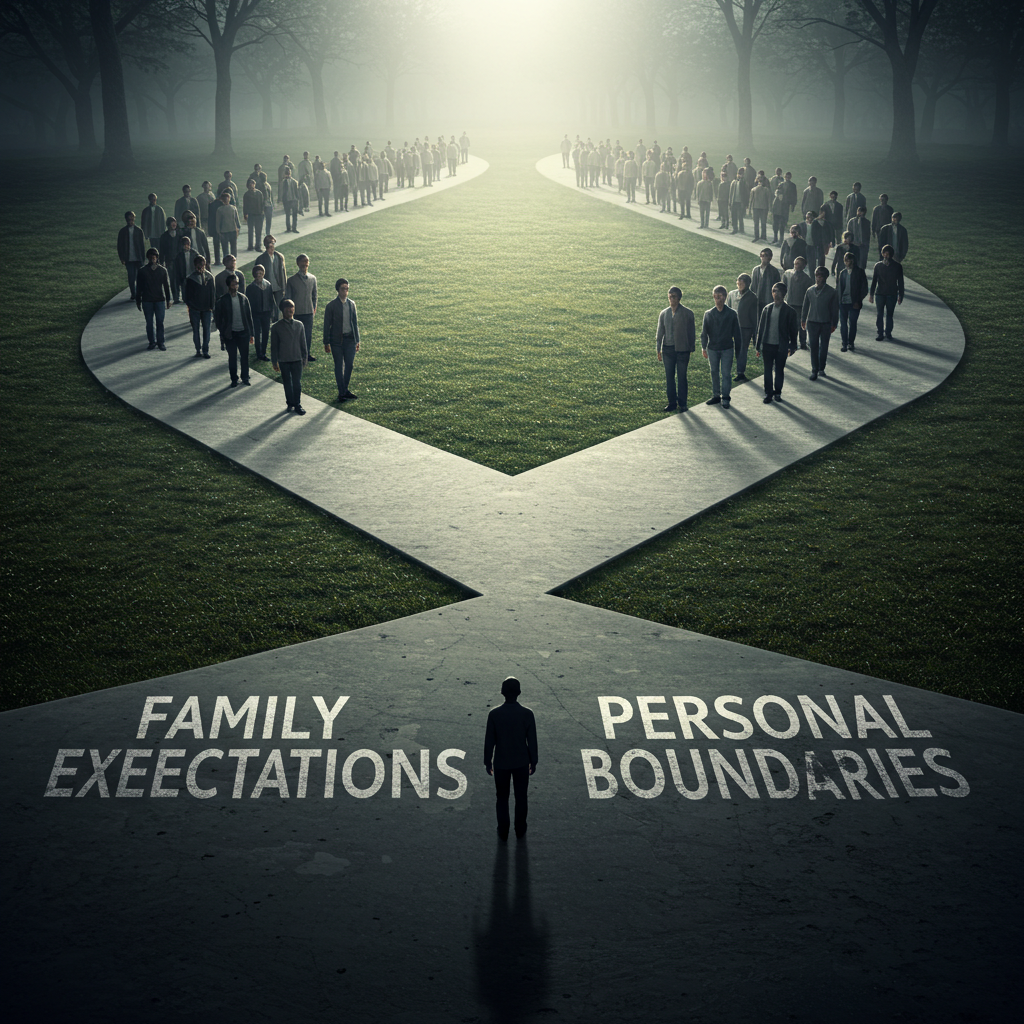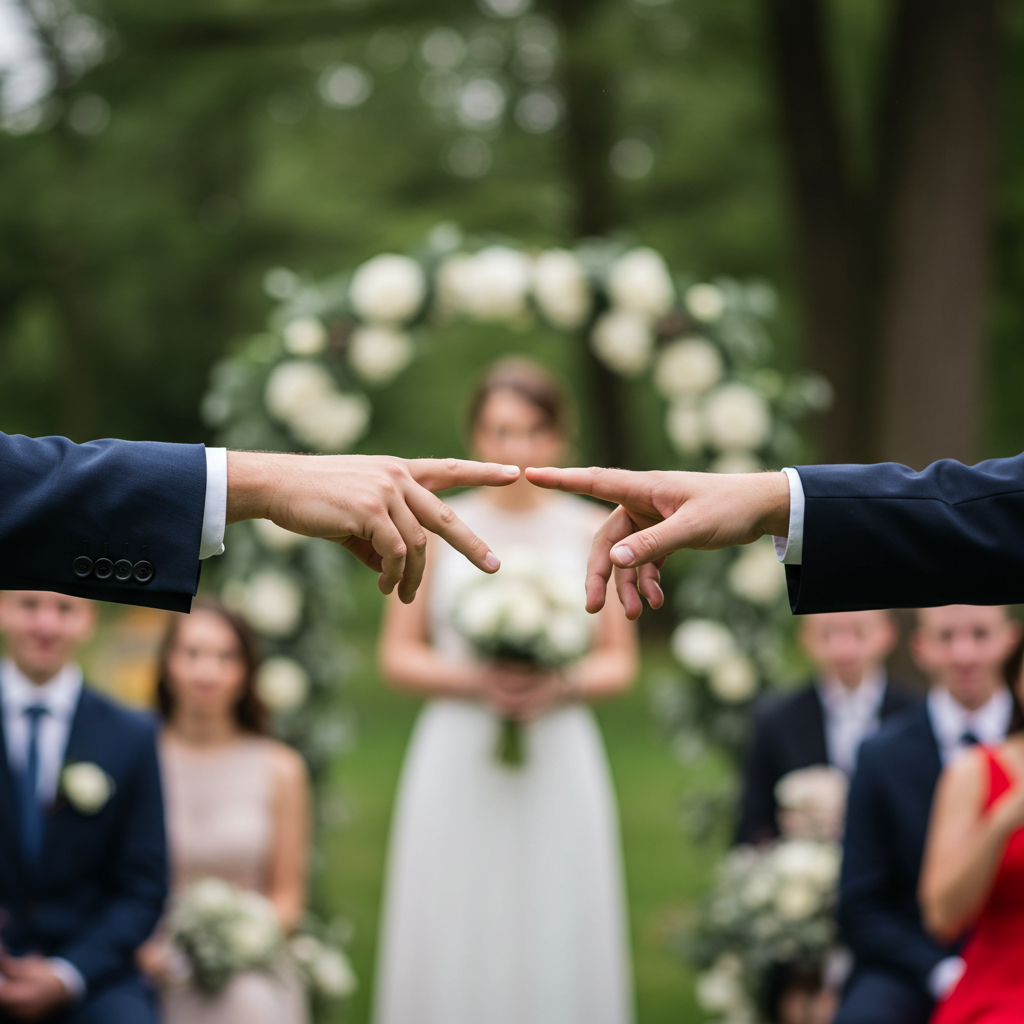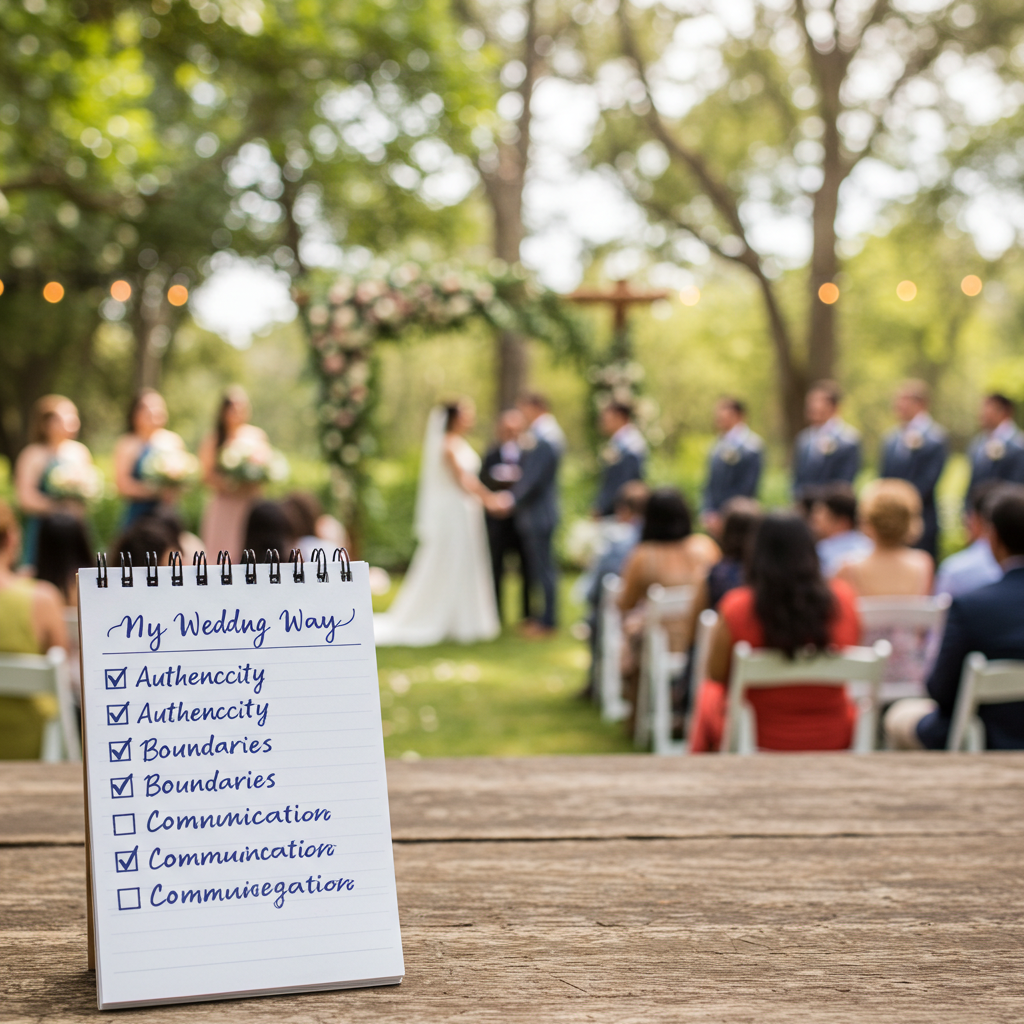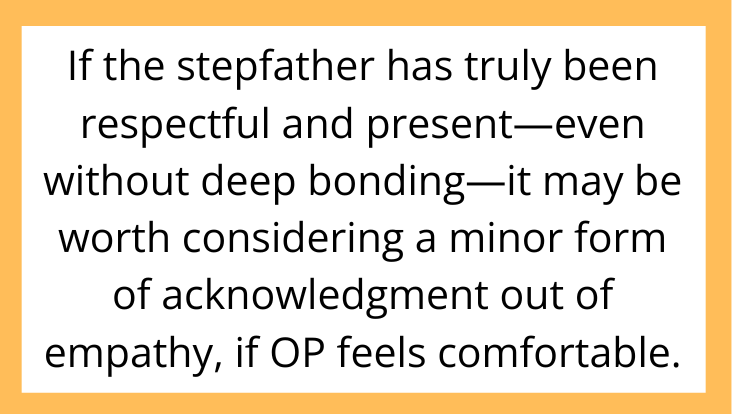AITAH for Not Wanting to Include My Stepfather in My Wedding?
Weddings are often described as a celebration of love and unity—but behind the scenes, they can also stir up deep emotional tensions, especially within blended families. One post on r/AITAH recently caught attention for exploring a sensitive dilemma: is it wrong to exclude a stepparent from your wedding when the relationship isn’t close?
Let’s dive into this complex scenario, unpack both sides, and explore how setting boundaries during milestone events can lead to both clarity—and conflict.
The Situation: A Wedding, A Guest List, and One Awkward Relationship

The original poster (OP) explained that their mother remarried when they were a teenager. While OP respected their stepfather, the relationship was never close or fatherly. OP’s biological father is still alive and has remained involved in their life.
As OP planned their upcoming wedding, they decided to honor only their biological parents during key moments—such as walking down the aisle and giving speeches. When OP shared this with their mother, she was deeply upset. The stepfather, too, felt excluded and hurt. Family members started accusing OP of being disrespectful and ungrateful.
OP, now unsure, asked the internet: AITAH for not wanting to include my stepfather in my wedding?
Family vs. Boundaries: The Emotional Cost of “Doing the Right Thing”

This situation hits on a classic wedding tension—family expectations vs. personal boundaries. On one hand, weddings are personal. On the other, they’re often treated as communal events where many expect to be recognized, especially those who believe they played a role in the person’s upbringing.
Here’s why OP’s decision struck a nerve:
-
The wedding is symbolic. Exclusion sends a message, intentional or not.
-
Stepfamily dynamics are layered. Even without a close bond, step-parents may expect acknowledgment, especially if they’ve been around for years.
-
Guilt is a powerful motivator. Choosing who to honor publicly can feel like choosing who to hurt.
But ultimately, weddings are not about obligation—they’re about authenticity.
Understanding OP’s Point of View

Let’s look at why OP’s choice isn’t necessarily cold or cruel:
-
Limited connection: A formal relationship doesn’t always translate to emotional closeness.
-
Desire for simplicity: Weddings are stressful; navigating complicated dynamics can add unnecessary emotional labor.
-
Personal vision: OP has a right to shape their big day according to what feels right to them, even if it breaks tradition.
In many cases, people compromise their vision to appease others—and then end up resenting it. OP is trying to avoid that.
But Is There a Middle Ground?

While OP’s boundaries are valid, there may be ways to acknowledge the stepfather without compromising personal comfort or authenticity:
-
Private appreciation: A heartfelt conversation or thank-you card expressing gratitude—even if not public—can go a long way.
-
Non-central roles: Including the stepfather in smaller wedding elements (like seating arrangements, rehearsal dinner, or family photos) could show inclusion without overstatement.
-
Honest communication: Letting both parents know the decision isn’t about rejecting anyone, but honoring personal relationships, can ease tension.
If the stepfather has truly been respectful and present—even without deep bonding—it may be worth considering a minor form of acknowledgment out of empathy, if OP feels comfortable.
The Internet Weighs In

As expected, Reddit was divided.
Many supported OP, arguing that weddings should reflect the couple’s authentic relationships—not social expectations. They praised OP for setting boundaries and refusing to perform gratitude they didn’t feel.
Others emphasized empathy, suggesting that excluding a longtime stepfather—even without a deep bond—could cause long-term familial rifts and hurt feelings that outweigh the simplicity of exclusion.
The consensus? OP wasn’t necessarily wrong—but how they communicated their decision would make all the difference.
Key Takeaways: Weddings and the Right to Choose

So, AITAH for not including a step-parent in a wedding? Here’s what we’ve learned:
-
You’re not a bad person for protecting your boundaries and emotional comfort.
-
Family dynamics are never one-size-fits-all.
-
How you communicate your choices often matters more than the choices themselves.
-
Including someone out of guilt often leads to resentment—not harmony.
Final Thoughts

Weddings are intensely personal, and while family should be celebrated, it’s okay to prioritize your feelings over tradition or pressure. Whether you’re navigating a complex blended family or facing guest list guilt, remember: you are allowed to design a day that feels meaningful to you.
At the end of the day, your wedding is a reflection of who you are—not just who others want you to be.


